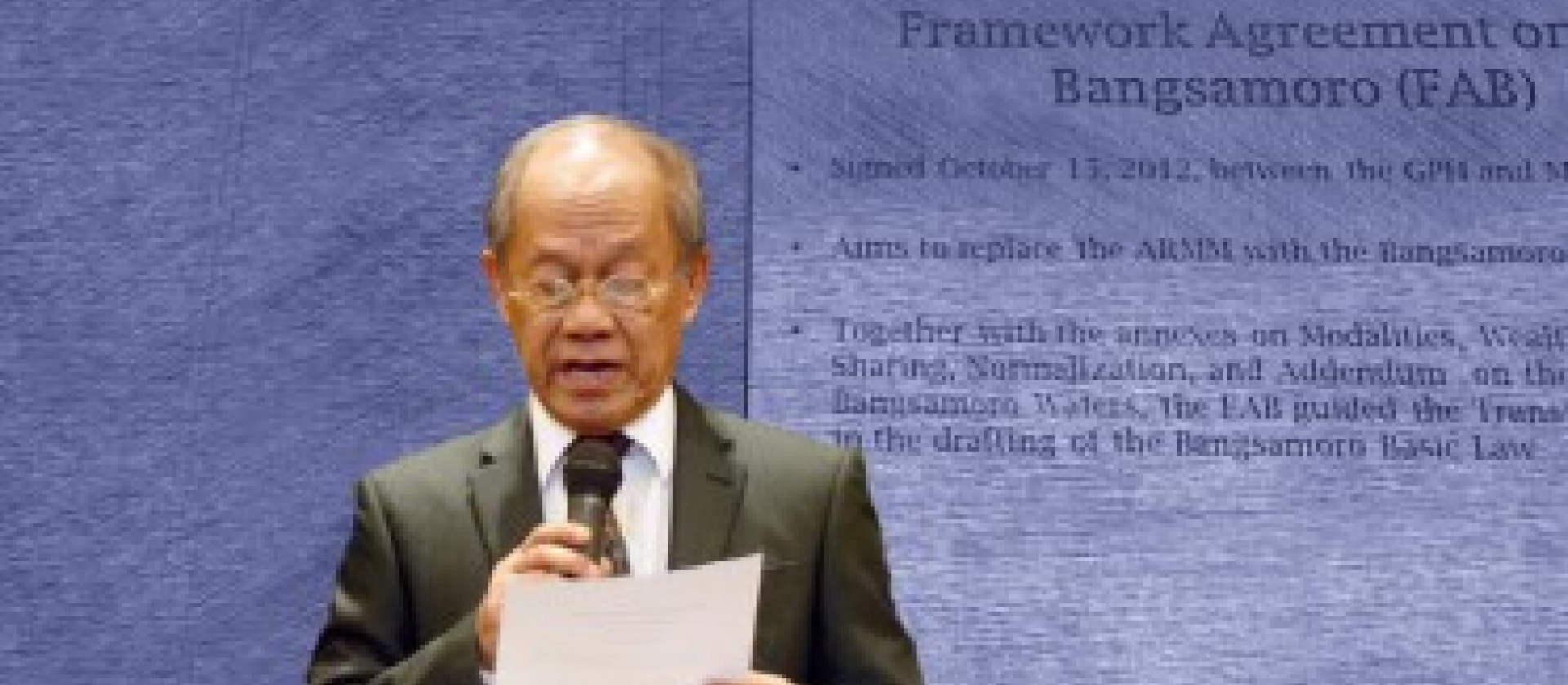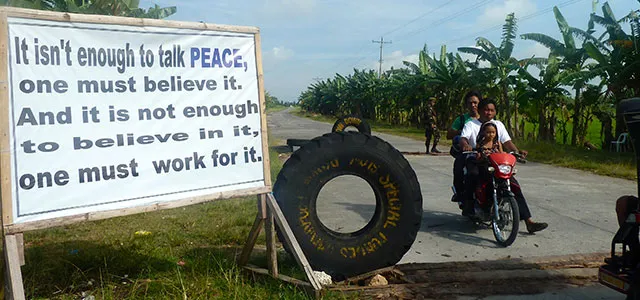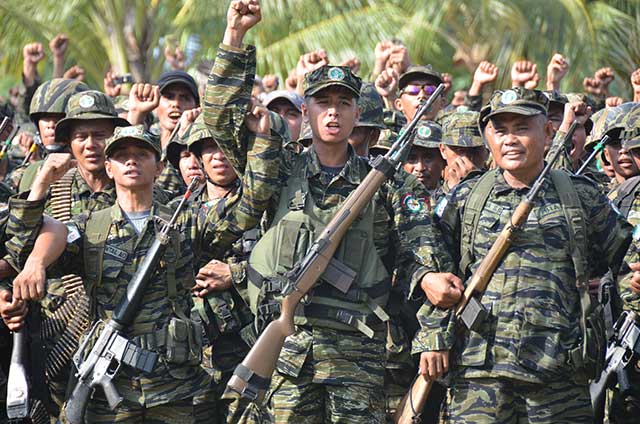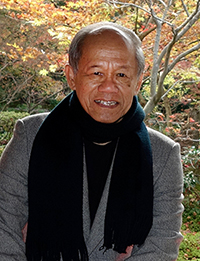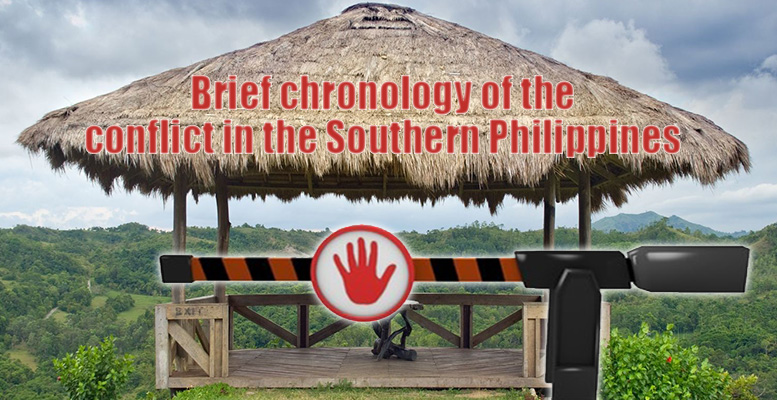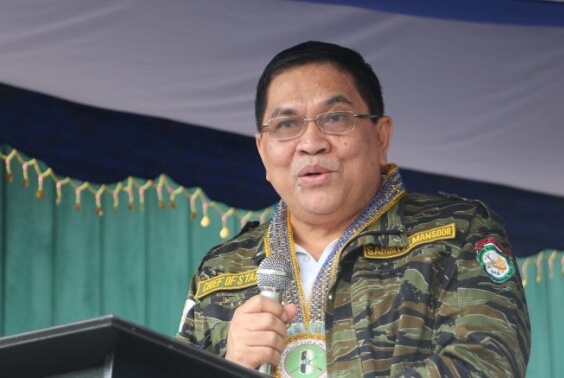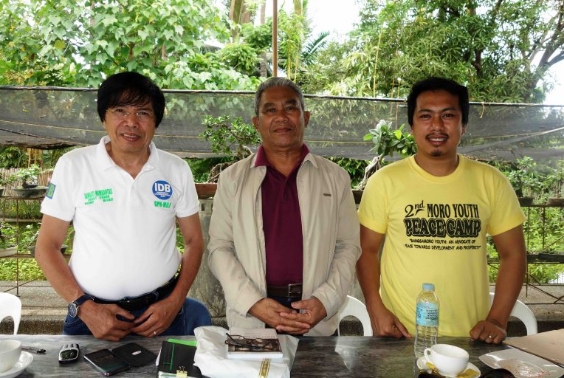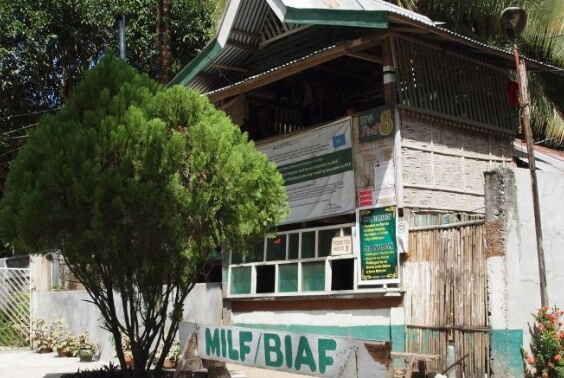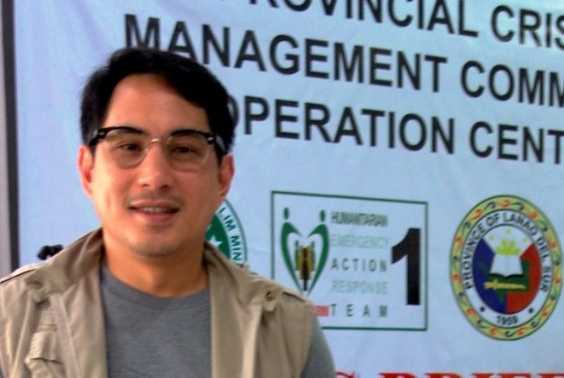The focus of my presentation highlights my personal experiences as a former Moro rebel who organized young Muslim Filipinos in the late sixties (1960s) to dramatize the growing discontent of Muslim Filipinos against their government, and to initiate collective action to urge the authorities to efficiently address demands for justice and equality from the native Moros. At the time, Muslim Filipinos had the feeling that their government was treating them as second class citizens in their own country.
To make the presentation more objective and devoid of any bias and prejudice, my actual involvement in the operation of the bureaucracy as former official thereof was likewise factored in this treatise. It is recalled that during the height of the conflict, massive government programs to placate the growing discontent of the Muslim Filipinos were initiated and launched by the Philippine Government.
In so many instances, the Moros were subjected to military atrocities. And their ancestral lands were gradually and systematically taken from them through dubious schemes in the guise of the various resettlement programs initiated by the national government. This was an effort to effectively address and eventually quell the growing insurgency that threatened to tear apart our national socio-political cohesion and even the territorial integrity of the country.
Resettlement Strategy to Placate Insurgents
The strategy of the government then was to resettle the insurgents from Luzon, which sits at the northern end of the Philippines, and is the country’s largest and most populous island, to the vast agricultural lands in Mindanao, including the areas populated by the Moros or the Muslim Filipinos. Thus, during the incumbency of the late President Ramon Magsaysay, working peasants from central Luzon and even in the landed estates in the Visayas were sent to Mindanao to settle there with government assistance.
In the early years of the program, the settlers and the natives appeared to live and co-exist in harmony. The newcomers started cultivating their lands and at the same time applying for legal titles thereto. Years passed and they were eventually issued titles to their respective landholdings.
Meantime, the native Moros, who, on account of lack of knowledge on the importance of land titling, were left holding no titles, other than their claims that the land they tilled and toiled had belonged to them since time immemorial. They considered their landholdings as part of their ancestral domain.
In addition, the natives started conveying their lands to new settlers through schemes which Moros were not familiar with, like loans and the concept of mortgage. Eventually, the failure on the part of the borrowers to settle the amount borrowed led to foreclosures of property mortgaged.
A Classic Story
I recall of an incident experienced by a friend who was then working in a bank. He narrated to me how a simple bank transaction could lead to serious misunderstanding. His story detailed how since the bank was engaged in lending operations, a native Moro might borrow funds from it using his land title as a collateral for the loan. When the loan account matured, the bank advised the borrower that, unless he settled his loan account within the prescribed period, it would initiate foreclosure proceedings against the mortgaged property.
To abbreviate the story, there being no settlement reached by the lender and the borrower, properties was eventually foreclosed. After the one-year redemption period allowed by law in our jurisdiction, the bank initiated action to consolidate its title over the foreclosed property and thereafter took action to exercise possession and ownership thereof.
Borrowers vehemently objected. They claimed that the bank could have the title to the property and continue to retain the same, but not the land. Otherwise, borrowers warned, they would not deliver the land and would defend it against whomsoever would attempt to take it. They alleged that the land had been owned by their ancestors since time immemorial and would not allow anyone to take possession, custody and ownership thereof.
Perhaps, the incident has been used among the reasons why financial institutions operating in the country do not prioritize Muslim Mindanao, particularly the conflict-affected areas, as priority for banking operations and investments opportunities. Certain financial institutions and investment houses see the areas populated by the native Moros as a graveyard for investment.
Feeling of Discrimination
In recent times, feelings of discrimination against the native Moros were evident. I was reminded of a story where a young Moro, after completing his academic degree in one of the universities in Metro Manila, decided to look for employment in the country’s seat of government. After submitting his application, he took the prescribed employment examinations and he was informed that he had made it with flying colors.
While reviewing the papers and documents the applicant submitted, the owner of the firm noticed that the name of the applicant sounded like an Arab. On realizing that the job applicant was a Moro, the management of the firm was alarmed. The owner of the company finally advised their human resource management officer to find ways to decline the application and to inform the applicant accordingly. Apparently, the only reason for the management’s adverse action was the prejudice and stereotyping against the native Moros of Muslim Mindanao.
In the past, Muslim Filipinos were subjected to discriminations and even atrocities and violence. One significant event in the Muslim Filipino struggle was the infamous Jabidah Massacre where a number of young Muslims from Western Mindanao were lured into enlisting in the military service only to be massacred by their trainers in the historic Island of Corregidor in 1967.
Rise of Militant Groups
As everybody knows, the incident partly primed the trigger that led to the so-called “Mindanao Conflict”. Thereafter, certain Muslim organizations aimed at safeguarding the interest and protecting the rights of the native Moros or the Muslim Filipinos were formed, including, among others, the Ansar-el-Islam, founded by the late Senator Ahmad Domocao Alonto, the Supreme Council for Islamic Affairs (SCIAP), headed by the late Governor Sultan Ali Dimaporo, The Muslim Association of the Philippines (MAP), led by the Senator Salipada Pendatun, the Philippine Muslim Lawyers league (PMLL), founded by the late Senator Abdul Jabbar Mamintal Tamano, and many others.
But what prompted the government to use its power and military resources was the formation of the Mindanao Independence Movement (MIM) which the late Governor Udtog Matalam of the Empire Province of Cotabato organized. It advocated secessionism and the emerging desire of certain Moro groups to secede from the Republic of the Philippines. There was a growing sentiment among the Moros that they did not feel a sense of belonging in the country they dearly love, as their forefathers had defended it against foreign aggression or invasion.
Eventually, certain young Muslim professionals and student leaders organized the Moro National Liberation Front (MNLF). However, due to differences in strategy and approach, a group of MNLF leaders and followers broke away from the MNLF and founded the Moro Islamic Liberation Front (MILF). The late Ustadz Hashim Salamat headed the new group. Since then, the MILF has remained one of the biggest, if not the biggest, Muslim liberation front in the Philippines today.

